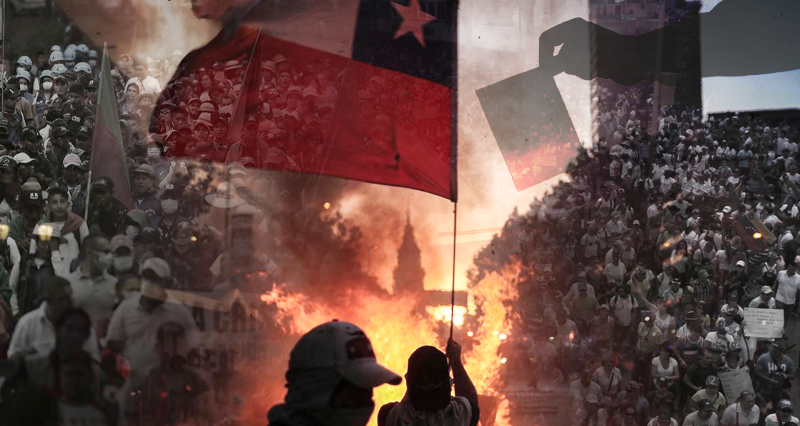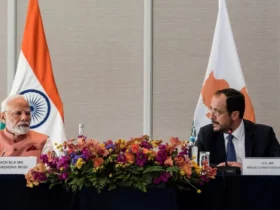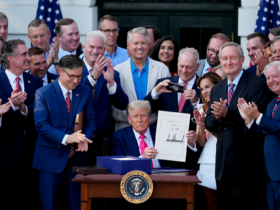By Daniel Martinez*
1. With the poor of the earth
On 26 January 2022 it will be 127 years since José Martí formulated a concept that takes on greater relevance in these complex times of global crisis: “Homeland is Humanity, it is that portion of humanity that we see most closely, and in which we were born”. As sons and daughters of the Patria Grande, of the Latin America in which we were born and which is our sister, we subscribe to the meaning of his thought, and at the same time we recognise ourselves in the class commitment contained in his immortal verse: “I want to cast my lot with the poor of the earth”.
United in this notion of humanity that Our America gives us, committed to the fate of the poor of the continent, we understand that the defence of humanity today is to confront, all of us united, the multifaceted crisis that is hitting our peoples. Although the immediate crisis was triggered by the Covid-19 pandemic, in reality what it revealed was a profound economic crisis and a crisis of democratic and civilising values of the system, which had been accumulating for more than a decade.
The international panorama at this juncture is characterised by contradictory and conflicting signals, especially in our continent, where at the same time as we witness the emergence of progressive and left-wing governments, we see setbacks in the social and political spaces previously won by the popular sectors and the resurgence of conservative currents, some of which do not hide the retrograde nature of their thinking.
Faced with this dilemma and this contradiction, some currents of the left and progressivism suggest, in response, abandoning the programmatic proposals with the greatest class content, that is, those that generate the most dissent, and moving towards positions closer to the current conservative tendencies of the international system.
While we can respect this position and recognise the right of these currents to move towards a centre, which progressively drifts to the right, our proposal is contrary to this strategy.
We believe that conservative tendencies must be confronted with strength and determination from the left, from a renewed, united and plural left, which finds in a solid policy of principles the strength to confront the fascist tendencies that hide in the false neo-liberal discourse, which defends a failed and anachronistic democracy.
The unavoidable complement to this left-wing stance lies in the commitment to the specific demands of the social movements and to join their mobilisations and protests. In this respect, the political parties of the left must leave behind the idea of leading social movements. We must move forward in a united way in sharing banners and lines of action, agreed in collective directions and with democratic decisions. We are challenged to overcome the historical tendency to think revolutionary change based more on the revolutionary party than on the class.
The common adversary in this struggle in defence of humanity is the US empire, which is desperately seeking to regain its hegemonic position by modifying the trends of globalisation and international rules, because the current ones not only do not serve it, but are leading it progressively towards a terminal crisis. That is why democracy is only valid for the empire when its results are favourable to it. Otherwise, it prefers coups d’état of all kinds, interventionist and destabilising actions and extra-territorial economic sanctions.
It is for these very reasons that the hegemonic sectors of our countries are once again becoming national replicas of US policy, accomplices to its violations of international law and instruments of its anti-democratic intervention. The imperial decadence, led at this moment by Biden and the Democrats, is expressed with greater force in Latin America, which has become a zone of retreat for its geopolitical interests, and leads us to foresee a worsening of its interference.
We believe that the most dissociative global trends will be expressed with intensity in Latin America. Contradictions will be exacerbated in our countries by the narrow margin of recovery of the neoliberal model within its normativity. In its imperious need for survival, neoliberalism, understood more as a project of domination than as an economic proposal, transcends its own legal borders, lies, transgresses rights, violates agreements and resorts to blackmail and the use of force in a re-edition of “the politics of the big stick”.
Although nowadays concepts such as “dialectics” are often understood as obscene, the current situation on our continent qualifies exactly as dialectic. On one hand, there are all the attempts of governments that want to overcome the pandemic crisis by making the workers and the middle classes pay the cost, and that predatory capitalism and its beneficiaries do not have to have their interests affected. On the other hand, there are the broad sectors of the population who react with legitimate violence, pressured by the accelerated deterioration of their living conditions and the institutional incapacity to offer solutions.
In the electoral sphere, this contradiction is expressed by high abstention rates and the drift of depoliticised sectors towards frankly fascist positions. The growing generational refusal to participate in the traditional forms of political life and the search for other forms of militancy and/or influence in the life of society also merits a more detailed analysis.
Instead of joining parties, young people of popular extraction or with a sense of class prefer to confront the media discourse of the right, using the speed of digital technology to propose, reject or support specific demands. It is a kind of militancy that combines the intensive use of social networks with acts of street protest that are characterised more by a high degree of violence and rejection of the system than by an organisation with a long-term vision.
Gramsci argues that the modern prince cannot be a person, or a personal hero, but a political party, a complex social organism in which the concretisation of a recognised collective will is initiated, and whose history is not reduced to the history of restricted groups of intellectuals or the biography of a single personality.
In the present conditions of class struggle, and because of the character it has taken on with the emergence of new social actors of change, the modern collective prince must be found both in political parties and in social movements, where it is the permanent feedback that provides the transformative and democratic character. In the long cycles of the historical process, principles must be understood as provisional in their formulations, since they were designed for a stage of social relations that changes over time. Ideological strength should not be confused with dogmatism. Ideological strength consists in being able to adapt principles to the historical moment without betraying their essence.
The institutions and their leaders will have to answer for the institutional failures mentioned above. As far as the Latin American left is concerned, we have to face up to our inability to propose concrete policies, economic and social paradigms that give life to new models that are clear alternatives to those that fragment and destroy the social fabric because they refuse to disappear.
A brief analysis of the demands expressed in the streets of Chile, Ecuador, Colombia and Peru, among other countries on the continent, clearly indicates that the new generations are demonstrating against the deterioration of the environment, in favour of peace, against the degradation of justice and disrespect for human rights. Their slogans are expressed in favour of the specific rights of women and for the most unrestricted freedom in sexual, reproductive and gender matters.
The intensification of exploitation and the violence of the system that accompanies it herald new explosions of popular rebellion and the angry demand for a new concept of democracy, which must be deliberative, decentralised and truly representative. A democracy that is not functional to the capitalist system and that is capable of listening to the demands of the new social actors, those of the generations, gender, Afro-descendants and indigenous peoples. A democracy in which society is capable of self-governance, regulation and self-regulation.
It is true that we are facing a crisis, which in the Gramscian sense is expressed because “the ruling class has lost consensus”. That is to say that it is no longer a leader, but only dominant: the holder of pure coercive force. Bolsonaro, Piñera and Bukele provide the explanation.
The organic crisis of a class or social group occurs to the extent that it has exhausted all the forms of life implicit in its social relations, but, thanks to political society and its forms of coercion, the dominant class artificially maintains its domination and prevents the new dominant group from replacing it: “the organic crisis consists in the fact that the old does not die and the new cannot yet be born”.
If we agree with this diagnosis, the tasks of the Latin American and Caribbean left would be to strive for the old to die, instead of accepting its promises of well-intentioned reforms, which only give it oxygen in its death throes. As an unavoidable complement is to promote the birth of the new, understanding that “the new” is socialism adapted to the current characteristics of our historical moment: a socialism that fights bureaucracy and centralist tendencies and that has drawn the appropriate lessons from the failures that preceded it.
Having assumed this strategic task as an imperative, we ask ourselves the question: is the current democracy, in force in its letter, its mechanisms and its spirit, a sufficient instrument to move towards a new democracy and a new society? From our point of view, the answer is no, because we believe that the prevailing democracy is part of “the old that will not die”.
We are faced with the paradox of aspiring to a new model of society and a new system by resorting to an anachronistic electoral instrument whose weaknesses are exposed every time elections are held. And even if this democracy were to open up a process of transformation, which includes it, disputing and appropriating hegemony is not a single process that is resolved once and for all, but a process that must be constantly renewed during the struggle and after the popular sectors gain access to power.
This hegemony must be expressed in a historical, national and popular project, with the people understood as the sum of all the new contemporary social subjects. It must also generate a democracy that represents all citizens. The new power will retain its legitimacy if it is capable of representing the collective national will and of preserving this attribute throughout the various stages of the exercise of acquired power.
2. Elections within a crisis of democracy in Latin America
In view of the above, we believe that the elections in Chile, as well as those in Argentina, Nicaragua, Venezuela, Honduras and others, should be analysed in a regional context. At present, elections are interrelated, whether due to neighbourhood effects, to previous identities between countries or to US interference, which attempts to standardise its interests under a common parameter.
Latin American democracies, built to sustain and justify a global capitalist economic model, feel the crisis of the system in their functioning and structures. For this reason, they are going through a profound crisis: their institutions are incapable of identifying and giving space to citizens’ demands. On the contrary, imbalances and inequalities are worsening.
Governments and large corporations, faced with an economic context of low growth or stagnation, resort to violating their own rules, encapsulating democracy in controlled electoral processes and abandoning and/or sabotaging any form of citizen participation in the direction of their governments and the use of the wealth produced.
As we have already pointed out, the deformations of Latin American democracies explain the emergence of new subjects and emerging social political forces, disappointed by the democratic model, who seek to change it for participatory systems that put a stop to the excesses of the legislative and judicial powers, especially in the case of progressive governments.
Under the banners of democracy proclaimed by the US, between 2000 and 2010 there was a marked shift to a neoliberal economic model and matrix that solved the problems of the oligarchies and consolidated a model functional to the interests of capitalism. This model did not solve the structural problems of the continent and progressively plunged the Latin American and Caribbean working classes into overexploitation, poverty, unemployment and, logically, anger and despair.
Political parties suffered a progressive crisis of representation as they lost touch with the citizenry. The disconnection between Latin American societies and the democratic system translated into outbursts of social frustration: from the “que se vayan todos” (Argentina, 2001), to the movement of the “outlaws” (Ecuador, 2005) and the “rebellion of the penguins” (Chile, 2011).
The negative economic context and the spiral of unmet social demands provoked in 2019 a wave of protests of regional scope and new episodes of social frustration, especially in the new, highly vulnerable middle classes, which overwhelmed the weak democratic systems, with ageing state apparatuses and fragmented party systems.
This leads to a time of what we would call “asymmetrical and obsolete democracies”: asymmetrical because they respond to the needs of a minority sector of society, which seeks to maintain power at any cost and which distances itself from the majority of the population that produces wealth, but fails to question hegemony; and obsolete because they are democracies whose institutions and procedures were consolidated in a historical moment that has already been overcome and where their own progenitors, persuaded that they are no longer useful, only maintain them as a stultified electoral discourse, but in practice they replace them with coercive mechanisms and authoritarian decisions.
Latin American democracies do not channel demands or find solutions to growing social frustration. What they do is develop demagogic and authoritarian political alternatives, with models that are far removed from, or even contrary to, democratic values (respect for the adversary and acceptance of results).
Authoritarian drift does not belong to any particular group on the political or ideological spectrum. The new caudillismos seek to demolish institutional structures, limiting the capacity to control other counterpowers, especially the judiciary and the legislature. Their strategy is expressed in various ways: strengthening of caudillista leaderships, attacks on the media and growing contempt for institutions.
To this are added other mechanisms, increasingly active, such as control of information, especially on the Internet and social networks, to abort the protests of unorganised and non-aligned sectors.
In almost two years of the pandemic, pre-existing economic-social and political-institutional problems have deepened. The persistence of structural problems (fuelled by the bad economic and social situation and accelerated by the pandemic) and the strategies of the new emerging political actors who have broken with or moved away from traditional political-institutional consensus and loyalty to the system, are highlighting the weaknesses of Latin American democracies.
In the absence of consolidated social or party bases, caudillos seek support from other organisations and institutions. Among these supports, the armed forces stand out. Given their level of organisation and extensive presence, they are not only being used for classic functions such as public security, but in countries such as Brazil and El Salvador they are also fulfilling another, more political role.
Latin America was going through and continues to go through a period of high levels of criticism of the way in which democracy exists and performs, justified by disappointment at its poor functioning in each country. At the same time, social networks play a role of loudspeaker and amplification of tension and polarisation.
As a consequence of this situation and the crisis of political parties, citizens are looking for other alternatives to solve their demands (corruption, economic problems and citizen security). This is where we are called upon to make an assessment of the recent electoral processes in the continent.
3. When voting is not choosing and winning is not winning
Our intention is not to analyse the results of the elections that close in 2021, nor to make comparisons between the figures of each exercise. We have already pointed out that we consider that they are taking place in the context of a democracy in crisis and where the rules of the game are not respectful of the will of the majority. Moreover, in each particular case, the parties and candidates themselves have made their assessments public.
Our aim is to insist on the lack of representativeness of those elected, on the adulteration of the electoral results through the propaganda that accompanies the candidacies, on the foreign interference that disqualifies candidates, and on the media’s ability to turn the elections into a marketing duel where the truth turns out to be a collateral aspect.
We would like to draw attention to certain regularities that occur in electoral processes and that constitute a wake-up call.
One of them is that behind the candidacies we find political conglomerates, alliances or coalitions that boast plurality, but which, in my opinion, rather than being plural, are multiclassist, that is to say, their hallmark is not given by the sum of organisations with similar political projects, but because behind a candidacy there are grouped tendencies of diverse ideological nature, which join forces in order to create artificial majorities.
Rather than having a common programme, they have a common objective: to defeat their adversary by accumulating more votes than him, to prevent the continuity of a government project they oppose, and/or to achieve power and then share it out according to the votes and material support that each of their components brought to triumph.
Worse still, the defeated oppositions in electoral processes refuse to recognise that they lost and resort to destabilising methods to oppose the victors. Bolivia for some time now, and Peru recently, are examples of this regularity, where the concept of opposition is replaced by that of conspiracy. It is impossible not to recognise behind this behaviour a continental project originating in US imperialism, which refuses to lose its presence and control over the traditional hegemonic sectors.
This is why we consider that voting is not choosing. A part of the population with the right to vote does not do so, either because none of the candidates represent their interests, or because by abstaining they want to express their rejection of the system as a whole, or simply because they are not interested in participating, as citizens, in the political destiny of the country through the ballot box. Those who vote, with the exception of a hard core of militants, choose “a product” presented in a package of promises and good intentions that soon disappear. The biblical miracle then occurs, but in reverse, and the wine ends up becoming water.
The “agenda-setting” is also very worrying. It has become a discouraging practice that, shortly after an electoral victory, the victors modify their campaign proposals, backtracking on points of democratic and popular content. The cases of Pedro Castillo in Peru and Xiomara Castro in Honduras regarding the call for a Constituent Assembly are particularly important.
In both cases, they supported it during their campaigns and, shortly after their electoral victory, they eliminated it from their project, giving little or no justification for their backtracking. The issue is very sensitive because, within the narrow margin of the institutional framework of current democracies, using the democratic bonus granted by an electoral victory to advance towards a modern Constitution with popular content would undoubtedly represent a democratic advance. It is to use the existing spaces of the old democracy to create a new institutionality.
Thus, abandoning the banners of the demands of broad sectors of the citizenry and renouncing the idea of an updated constitution is to want to move towards a new society by resorting to old instruments, which casts doubt on the possible results.
Another element for reflection is that recent electoral campaigns and their speeches express a distancing between the citizen contingents that proclaim their needs with street protests and the progressive and/or left-wing candidacies. Several misunderstandings are contained therein.
On the one hand, the parties and organisations do not realise that the sectors mobilised in the street protests distrust them and the party system as a whole. On the other hand, when the parties propose that the demands be channelled through an electoral struggle, they make those mobilised feel that they are not represented and, rather, conclude that the parties are closing ranks and taking advantage of the system.
This sort of “disavowal” of the forms of street struggle and the imperative to back an electoral formula partly explains situations such as the first round of the presidential elections in Chile, which surprised by a notorious difference in turnout between the votes that led to the Constitutional Convention and the support for the candidacy of Gabriel Boric.
Just as progressive governments, beyond their good intentions and desires for change, distance themselves from their bases in the exercise of acquired power, there is also a mutual disaffection between the candidates and the mobilised.
This leads us to some initial provisional conclusions:
Transformative struggles in Latin America have to go beyond the search for electoral victories, for which it is necessary to transgress existing democratic spaces, to walk at the pace that the popular majorities walk and to accompany their forms of struggle.
To understand electoral battles as a tactical step and not as an end in itself.
The future democracy of Latin America and the Caribbean will not emerge from the results of the ballot box. It will be the result of left political parties meeting again in a common battle with the mobilised masses in the continent.
*Sociologist with specialisation in International Relations, analyst and researcher on Latin America, international policts adviser of Alberto Anaya Gutierrez, National Coordinator of Mexico’s Labor Party.
Translated from Spanish by Ana Dagorret.

















Leave a Reply